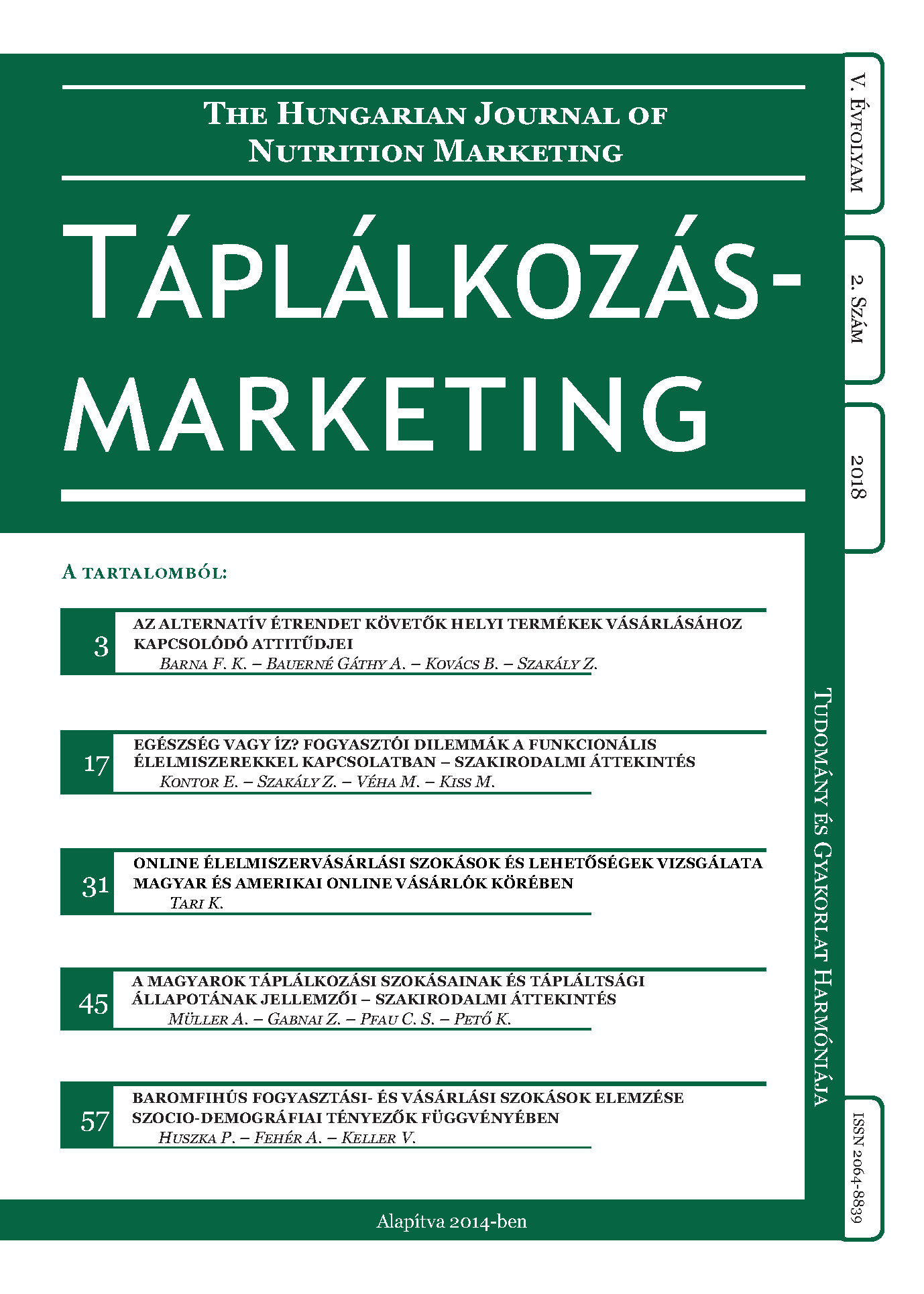Analysis of Poultry Consumption and Purcase Habits in Connection with Socio-demographic Factors
Authors
View
Keywords
License
Copyright (c) 2018 Táplálkozásmarketing

This work is licensed under a Creative Commons Attribution-NoDerivatives 4.0 International License.
How To Cite
Abstract
The consumption of poultry is an important source of nutrition, so it is a basic need for everyday food conception. To supply the population is not only a sensitive social question, but also a question of national health. The aim of this study is to reveal the connection between the preference of poultry and the basic socio-demographic factors and highlight the circumstances of purchasing this type of meat. In order to understand the preference of poultry, a large sample quantitative (N=1 023 respondents) study was conducted. The preference of poultry depends on the age and residence of consumers. People over 50 and below 34 living in larger cities have the most favorable preference towards poultry. In order to understand the circumstances of purchasing poultry and other meat products, an observation (N=134) was conducted. Customers typically buy fresh meat in super- and hypermarkets or at butcher’s and they request the product from salespeople. Shoppers prefer to buy poultry than pork or beef. Considering poultry people usually buy pigeon-breast either filet or boned. People pay an average amount of 3 700 HUF for meat, however, the standard deviation is high. The mode are 2 000, 4 000 and 6 000 HUF. In general, the process of purchasing lasts for 10 minutes. Customers usually buy poultry because of hedonism and healthy eating style that is why companies have to sell the advantages and not only the product on the market.
JEL code: M31


 https://doi.org/10.20494/TM/5/2/5
https://doi.org/10.20494/TM/5/2/5





